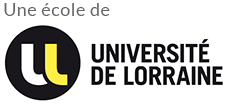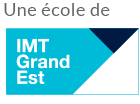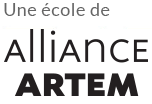Mines Nancy, through its professional continuing education programme, aims to provide learning programmes tailored to the needs of companies.
From multi-year degree courses (Engineering – including work-study options: apprenticeship and professionalisation contracts – and Post Master’s or institution-accredited degrees) to short modules of one to five days and bespoke courses, all the programmes offered have in common the acquisition of skills that are immediately transferrable to the professional environment of each trainee.
Already recognised for its pedagogical engineering in initial education, transferring this expertise to professional continuing education allows the school to combine theory and practise in its pragmatic approach to instruction. At Mines Nancy, all of our courses, whether or not they lead to a qualification, have been created for professionals who are looking to change direction, acquire new skills or gain a broader knowledge of their profession or sector.
Accredited continuing education programme (long courses)
- Mines de Nancy Civil Engineering
- Industrial Engineering & Materials Speciality
- Engineering degree with a specialisation in Mechanical Engineering – Design Engineering pathway
- Post Master’s (Mastère Spécialisé®) in Waste Management, Treatment and Recovery
- Post Master’s in Business Takeovers
- Post Master’s in Cybersecurity
- Masters
- Institutional diplomas
Continuing education courses leading to qualifications (short courses)
Courses built around the expertise of Mines Nancy teachers and researchers:
- Courses based on the scientific and technical teaching of initial and continuing education
- Courses delivered at the school or the company
- Teaching in French or English.
Giving you the opportunity to:
- Update your knowledge and keep in touch with the latest scientific & technical developments
- Acquire new skills
- Stimulate technological innovation
What we offer:
- Short qualification-awarding courses based on the school’s research and innovation potential in the fields of engineering science – Short courses lasting from two to five days
- Specific or tailored initiatives to meet the skills management needs of companies and professional organisations – Tailored training for groups of three to ten employees at the same company. The educational method and scenarios, the pace and duration of the training, the mode of teaching (face-to-face, distance learning, etc.) and the assessment and organisational methods fit closely with the requirements of our industrial contacts.
Who is it for?
- Engineers, researchers, senior technicians, executives and professionals wishing to acquire new skills, discover or deepen their knowledge of a field or technology or learn about current research
- Companies, local authorities and administrations wishing to develop the skills of their employees.
Our areas of expertise:
- PoCES: underground environment skills cluster
- Cybersecurity training
- Training in the industry of the future
- Training in production management
- Materials training
BECOME A MINES NANCY ENGINEER THROUGH PROFESSIONAL TRAINING!
Obtain an engineering degree through professional training (the Fontanet professional training pathway was created by decree on 31 January 1974 and published in the Official Journal of the French Republic on 16 March 1974) by studying at a school authorised by the Commission des Titres d’Ingénieur (engineering qualification commission). This degree is identical to the one awarded for initial education.
Lorraine INP offers preparatory courses before entry to one of its schools.
Following the preparation, you can join a school and become an engineer in:
Agronomy • Agri-food • Energy • Environment • Biological engineering • Chemical engineering • Civil engineering • Process engineering • Electrical engineering • Industrial engineering and innovation • Mechanical engineering • Thermal engineering • Geoscience • Mineral resources • Design engineering • Complex systems engineering • Materials • Industrial safety and major hazards • Information science • Digital science • Timber technologies and industries











